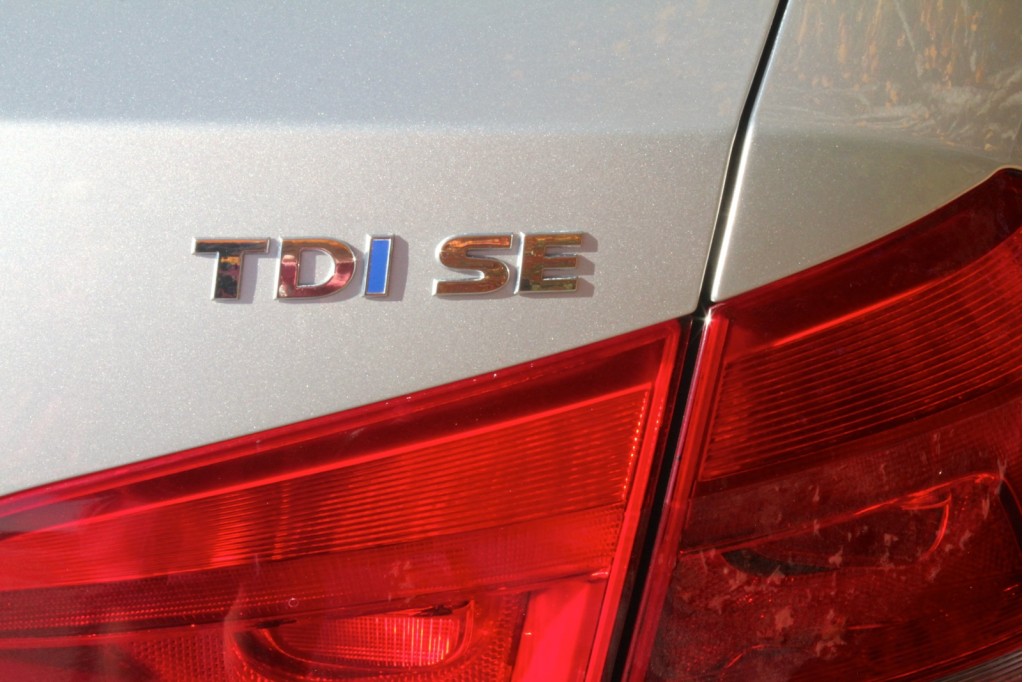A few weeks back, we looked at the numbers showing diesel sales in the U.S. increasing, just as hybrids are becoming more popular in Europe.
That's a shift from current preferences, which sees more than half of European car sales fitted with diesel engines, but more hybrids sold in the U.S. than anywhere else.
Those norms are unlikely to change in the near future, but there are some signs that diesel may now be at the peak of its popularity in Europe.
A host of regulatory and technical factors may lead to a slow decline in diesel sales in Europe--the only real stronghold for diesel passenger vehicles--over the next decade and beyond.
Why diesels are good
The popularity of diesel engines for passenger cars has exploded in the last two decades, to the point where diesel is now the dominant fuel in Europe.
Older diesels were slow, noisy, dirty and unrefined. Technological advances have addressed all those issues since 1990, to the point where modern diesels not only outperform their gasoline counterparts on the road, but also often match them on refinement.
Direct injection, turbocharging and sequential turbocharging, and other technologies have seen performance rise as efficiency does likewise.
Couple the fuel-efficiency gains with the lower taxes on diesel vehicles in several European countries, and it's no surprise that they've become popular.
Even in countries like the UK, where diesel fuel is more expensive than gasoline, half of all new cars sold are diesel. That's due to lower CO2-based road taxes and fuel economy potentially good enough that it offsets both the purchase price and the fuel costs.
Why diesels are not so good
The honeymoon period could be ending, however--and it's partly down to that old issue of diesels being dirty.
A modern diesel typically emits fewer hydrocarbons and less carbon monoxide than a gasoline vehicle, but greater amounts of nitrogen oxides and particulate matter.

diesel and AdBlue fillers in Audi Q7 TDI
The latest line of attack combines urea injection and diesel particulate filters to reduce these emissions--at a notable increase in the cost of a diesel engine fitted with these systems.
Most smaller European diesels don't currently need urea injection, but new "Euro 6" emissions standards will arrive in September 2014.
They're roughly equivalent to U.S. standards that have seen urea injection fitted to every passenger diesel sold in the States except the Volkswagen Golf and Jetta and 2014 Mazda6 diesel.
The industry expects a further tightening of standards, with "Euro 7" already being discussed for 2020 or later. That will only make it harder and more expensive to build already-pricey diesel engines.
At some point, the extra expense of a diesel car simply won't be worth the extra money over increasingly efficient (and cheaper) gasoline vehicles--and the market will ebb.
Longer-term maintenance is causing worries too, with those necessary particulate filters often failing for city-bound drivers.
Ironically, economical low engine speeds mean exhaust gases don't get hot enough to burn off the particulate matter--leading to clogged filters and expensive replacements.
Small gas engines improving
There are already signs of this happening. Only a few years ago, most of Europe's smallest vehicles could be bought with diesel powerplants in sizes as small as 1.0 liter.

2012 Volkswagen Passat TDI Six-Month Road Test
Today, they're starting to disappear, replaced by tiny-capacity, turbocharged gasoline engines like Fiat's TwinAir and the 1.0-liter Ford Ecoboost. Volkswagen has said it will build no future diesel of less than 1.6 liters for its volume cars.
At those small sizes, a diesel can be as much as $1,500 more expensive--a huge amount in a small, inexpensive vehicle--due to the cost of the after-treatment system.
Gas engines are also regaining lost ground on driveability, too. Emissions regulations have somewhat stifled diesel performance--while newer engines are more refined, they offer less "punch" than they used to--while turbocharged gasoline engines offer punchier performance and better refinement.
Rising levels of overall fuel economy have also helped.
Gasoline cars still lag behind the equivalent diesel in terms of economy, but there's much less difference in gallons of fuel consumed.
A 40-mpg gasoline car burns 50 more gallons than a 50-mpg diesel over 10,000 miles, versus a difference of 100 gallons between 25-mpg and 33-mpg alternatives over the same distance.
Modern diesels are undoubtedly great cars, and they're usually enjoyable to drive.
But if emissions regulations continue to tighten, it may simply get too expensive to make them worthwhile for economy-conscious buyers--meaning they may increasingly be restricted to the largest and least-efficient vehicles.
And Europe, with its love of diesel, would be hit harder than most.
[Hat tip: Pitt Moos]
+++++++++++













